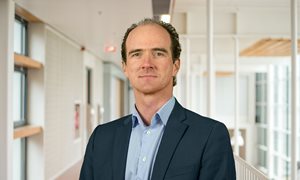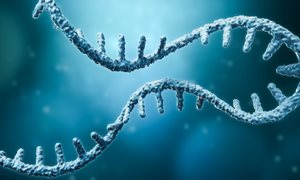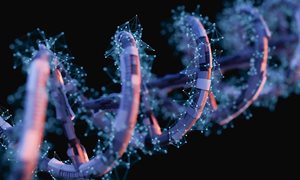20 February 2019
The clinical implication of these results is that seemingly well-recovered stroke patients are easily overestimated with regard to their balance capacity, because clinical leg motor scores do not capture the subtle motor control needed for balance. This notion may also be the explanation why patients after a second (bilateral) stroke show a relatively severe decline in their balance capacity, since compensation by the sound side is no longer possible.
Publication
Relationships Between Affected-Leg Motor Impairment, Postural Asymmetry, and Impaired Body Sway Control After Unilateral Supratentorial Stroke
 In Neurorehabilitation and Neural Repair Jolanda Roelofs and Sander Geurts showed that well-recovered persons in the chronic phase after stroke with clinically no (or only very limited) motor impairment of the affected leg may still show substantial problems with standing balance control.
In Neurorehabilitation and Neural Repair Jolanda Roelofs and Sander Geurts showed that well-recovered persons in the chronic phase after stroke with clinically no (or only very limited) motor impairment of the affected leg may still show substantial problems with standing balance control.
The clinical implication of these results is that seemingly well-recovered stroke patients are easily overestimated with regard to their balance capacity, because clinical leg motor scores do not capture the subtle motor control needed for balance. This notion may also be the explanation why patients after a second (bilateral) stroke show a relatively severe decline in their balance capacity, since compensation by the sound side is no longer possible.
Publication
Relationships Between Affected-Leg Motor Impairment, Postural Asymmetry, and Impaired Body Sway Control After Unilateral Supratentorial Stroke
Related news items

Five million euro’s for joint research on rare movement disorders
29 March 2022 A Dutch consortium will receive almost 5 million euro’s from NWO to jointly start an ambitious project, called CureQ, on various rare and genetic brain disorders that lead to abnormal movements. Bart van de Warrenburg was one of the main applicants of this ‘Nationale Wetenschaps Agenda (NWA)’ grant. go to page
Development of RNA therapy for rare movement disorder SCA7 Brain Foundation grant for Radboudumc and LUMC
3 February 2022 Neurologist Bart van de Warrenburg, together with Willeke van Roon-Mom and Annemieke Aartsma-Rus (both LUMC/Dutch Center for RNA Therapeutics), has been awarded 400,000 euros by the Dutch Brain Foundation to develop a genetic therapy for the rare hereditary movement disorder SCA7. go to page
Aerobe exercise has a positive effect on brain function in Parkinson's disease patients
18 January 2022 Radboudumc researchers have shown that the brain function of patients with Parkinson's disease improved with regular exercise, which seems to strengthen the connections between different brain areas, while inhibiting brain shrinkage. go to page
New genetic defect links cell biology and protein glycosylation
10 November 2021 Peter Linders, Dirk Lefeber and Geert van den Bogaart together with international colleagues have recently reported on novel cell biological insights, by identifying a genetic disorder in syntaxin-5 which allowed to unravel a new mechanism regulating intracellular transportation. go to page
Back on your feet after brain damage Loop Expertise Centrum develops method for treating walking impairments
27 February 2018 Brain damage following a stroke, brain tumor or accident often results in walking impairments. The huge variation in problems and treatment options makes this a very difficult problem to treat. go to page